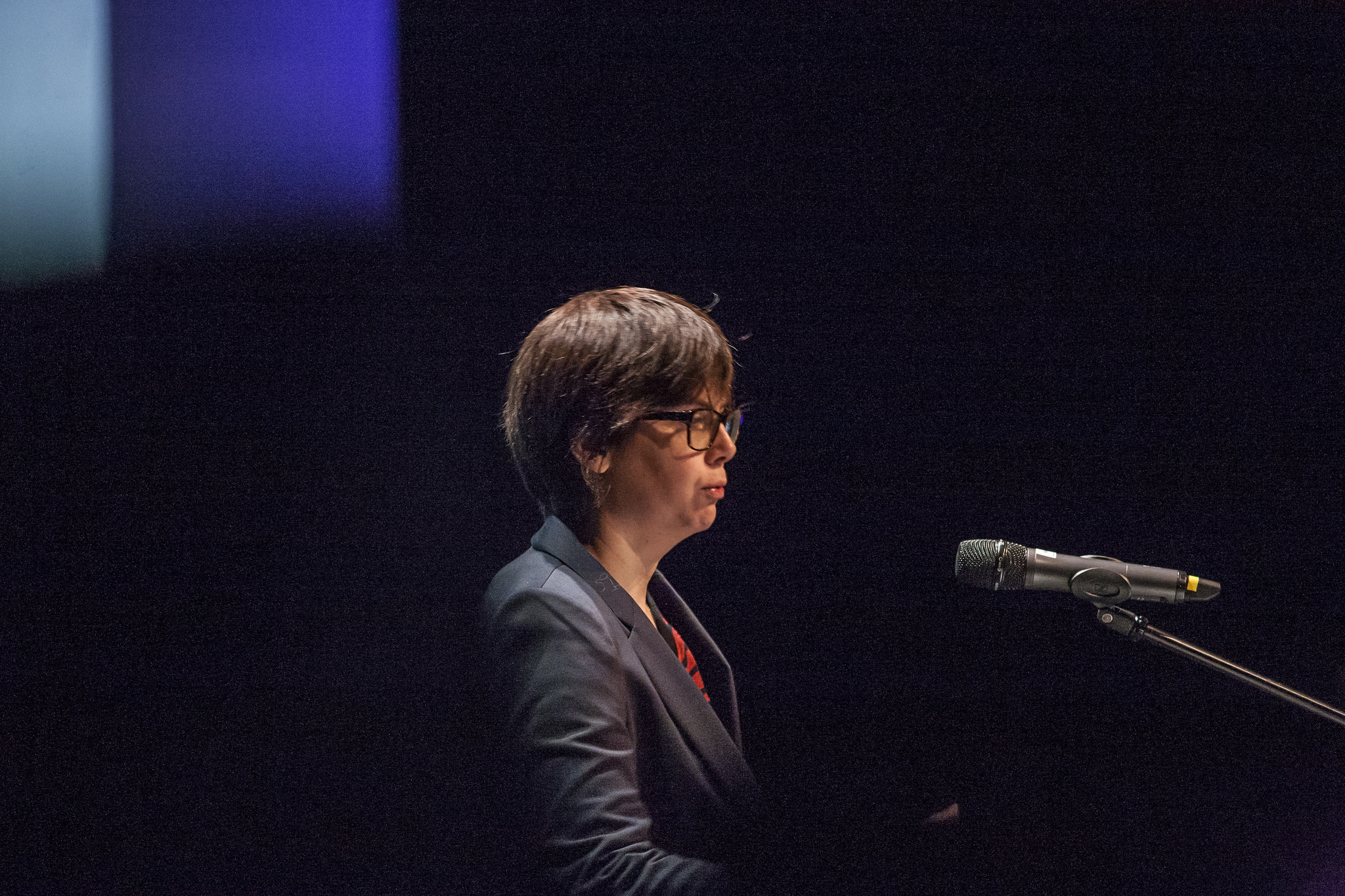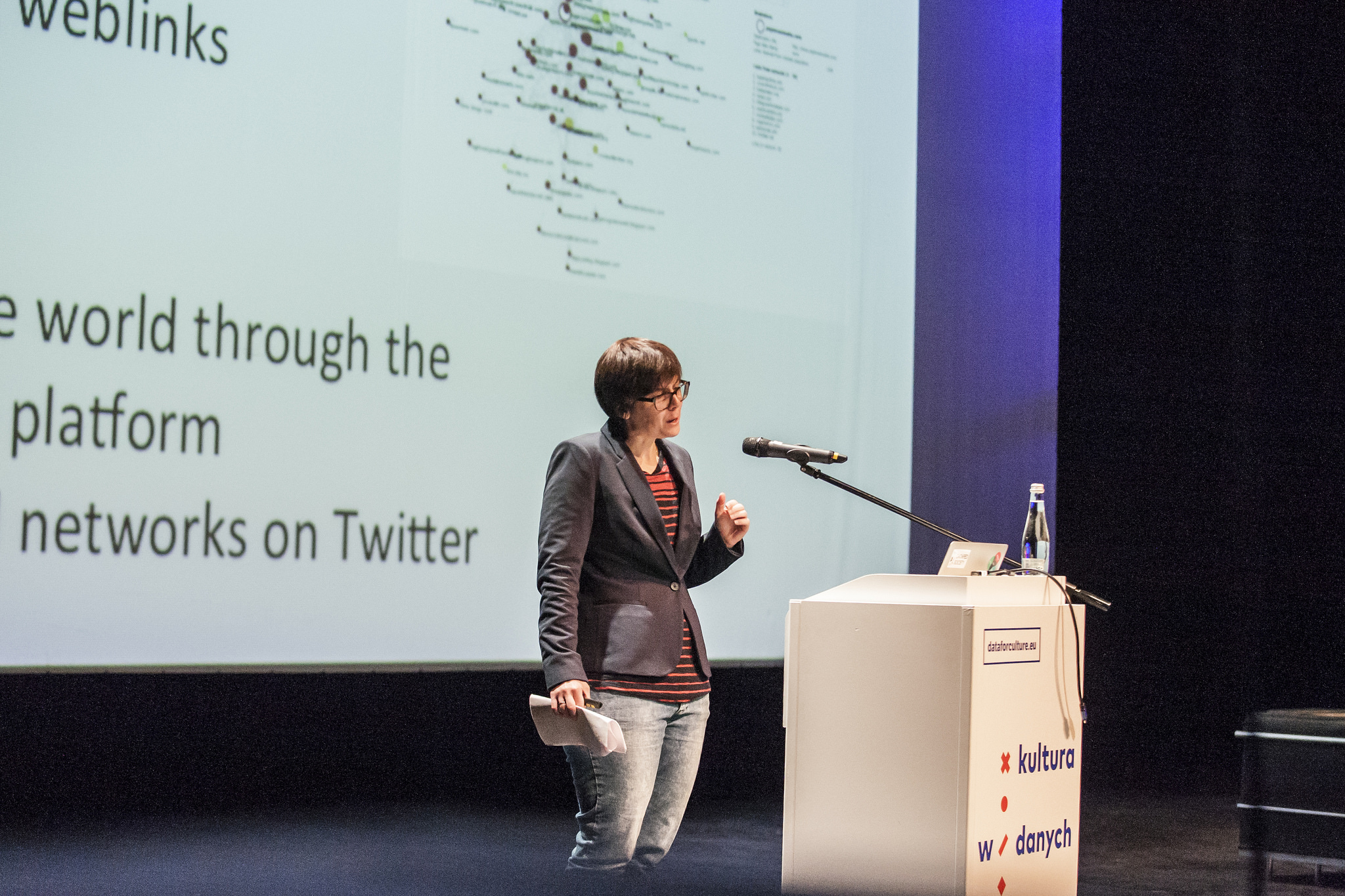Karin van Es: Data-driven approaches are often particularly good at raising new questions, which may need to be answered with different methods
On data-driven research and visualization with Karin van Es from Utrecht Data School, who gave a lecture at Data (for) culture conference in Katowice
Łukasz Mirocha, Karin van EsInterview
- Łukasz Mirocha: In your last book “The Datafied Society: Studying Culture through Data” you argue that a data-driven paradigm will constitute the core of twenty-first-century cultural, economic and social practices. To what extent should researchers adapt to this new reality and apply it to their work research methodologies based on digital data extraction, analysis and visualization?
Karin van Es: In relation to Critical Data Studies at the Utrecht Data School (UDS), we have come to the realization that studying the impact of novel data-practices requires what we call ‘entrepreneurial research’. Drawn from Participatory Action Research (PAR), this involves deep engagement with the domain of the research subject through commercial services and products. It means working in the field alongside practitioners and offers an insider’s view of how datafication manifests itself, which narratives shape the expectations in data practices, which actors affect the development of data-driven solutions etc. There are scholars, such as Noortje Marres, who have been critical of the debate of whether existing methods should be digitized or the need to develop digitally native methods. She argues for a third approach she calls ‘interface methods’, and argues that we should be exploring how we can configure these tools to develop methods of social enquiry.
- Medialab Katowice has been following a hybrid approach in analyzing the cultural life of the city, which relies both on traditional methods of cultural research and on analyzing large data sets gathered from Facebook and other online sources. Can you see any benefits of that approach?
Yes, such an approach is not only beneficial, but I would even go so far as to say that it is necessary. At Utrecht Data School, our data analysis is often developed jointly with an ethnographic approach. We also use a number of mixed methods where e.g. statistical text analysis is connected with close reading of texts. Another approach we follow is using the quantitative analysis of geo-data that informs qualitative research in the field that is described by such data.
- What would be the added value of contrasting a data set of a particular type with another one?
It should be evident by now that data don’t speak for themselves! Data-driven knowledge production is context specific and offers only particular types of knowledge. Social media users, for instance, are not representative of society. Ultimately, there are important questions about human life that quantitative data cannot answer. Therefore, in addition to using both off- and online data, like many other researchers, I would propose that there is a great benefit in toggling between so-called ‘distant reading’ and ‘close reading’.
- How to remain critically reflective towards both possibilities and limitations that come with working with (Big) Data sets and studying complex social and cultural phenomena through data?
If datafication is yet another process of mediatization, as we argued, a humanities scholar is particularly well suited to scrutinize this process of translation. She can’t, however, rely only on distinct skills and methods, but need to develop what has been called Digital Bildung, which is, as Rieder and Röhle explain, the ability to think with and in technology as knowledge tools.
- What does it mean for a (data) researcher?
At Utrecht Data School, we teach our students about many ‘interpretive acts’ that take place in the selection, collection and analysis of data and the visualization of results. This coincides with “tool criticism”, thinking about the epistemological impact of knowledge technologies, and also raising ethical concerns.
Furthermore, our contention is that too often only successes in digital data analysis are shared and find there should be more opportunities to share and learn from each other’s failures.
As we work mostly in the field, our criticism of practices, technology and policy directly informs stakeholders or is even jointly developed. We do not shout or comment critically from sidelines, but take responsibility in the field.
- The age of Big Data is imposing on us new techniques of information and knowledge representation. How and when can data visualization help in presenting research findings on complex cultural phenomena, such as e.g. the cultural life of the city?
The use of data visualization is hardly new. The possibility to convey complex phenomena in easy-to-read charts is highly attractive. The problem is that visualizations often are thought to communicate facts rather than interpretations of data. They privilege certain viewpoints and perpetuate particular power relations. It may thus be beneficial that certain questions about the visualization should accompany it. At Utrecht Data School, we are working on a plugin for Gephi that supports the systematic documentation of visualization and analysis process, making it more accountable and verifiable. Providing interpretation of data and explaining a methodology is definitely warranted. In many respects, data driven approaches are particularly good at raising new questions which may need to be answered with different methods.
- What are the research gains of working with data sets in an interdisciplinary team composed of traditional researchers, data scientists, designers, etc.?
There are a number of projects we have worked on at the Utrecht Data School that show the need to work in interdisciplinary teams. In addition to data scientists, we work with people from fields such as applied ethics, linguistics and anthropology. Each one brings with them a unique perspective and competencies on how to conduct data driven research and what meaning can be found in analyzing the collected data. There are questions (particularly concerning ethics and culture) that data scientists don’t usually ask, but they know far better what types of questions it is possible to ask the data.
- How do you see the future of data analytics and visualization in relation to advancements e.g. in machine learning and immersive media — Virtual / Augmented Reality?
It is thought that AR can help overcome the limits of human vision and perception by offering multi-dimensional representations of data visualization. Businesses in particular think this is a good way to display information in a meaningful way. AR also offers the opportunity to gather large amounts of data from the real world and record users’ behavior. On the other hand, more data doesn’t necessarily lead to better insights and may even complicate understandings of what is being represented.
Get a free copy of “The Datafied Society: Studying Culture through Data” edited by Mirko Tobias Schäfer and Karin van Es.

